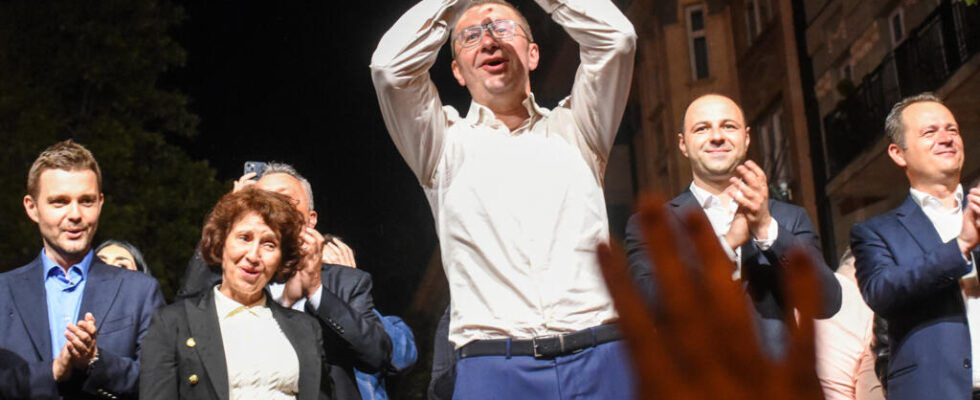The Prime Minister-designate of North Macedonia declared, Thursday, May 16, that he will continue to call his country “ Macedonia », despite the anger of Greece with which Skopje concluded an agreement in 2018 to change its name.
2 mins
“ What I’m going to call my country is my fundamental right », hammered to the press on Thursday Hristijan Mickoski, president of VMRO-DPMNE, a right-wing nationalist group which won the legislative and presidential elections of May 8 in North Macedonia. “ If they (there Greece)pfeel that we have violated the Prespa agreement, there is the International Court of Justice. They can launch a lawsuit there and we will confront our arguments there. I wouldn’t want that to happen », added Hristijan Mickoski.
Skopje concluded a historic agreement with Athens in 2018 by agreeing to add the geographical reference “North” to the name of the country. The aim being to distinguish it from the Greek province of Macedonia, in order to put an end to a long-standing quarrel with its neighbor, which for this reason blocked its accession to NATO and its negotiations for accession to the European Union. Signed by the Macedonian social-democratic and left-wing government at the time in Greece, this agreement allowed North Macedonia to join NATO in 2020.
Read alsoNorth Macedonia: nationalists win the elections
But the old dispute was reopened on Sunday when North Macedonia’s new president, Gordana Siljanovska-Davkova, used the name ” Macedonia » during her swearing-in, contrary to the text she normally had to declaim. His gesture was described as “ provocative ” and D’ “ illegal and unacceptable initiative”, by Greek Prime Minister Kyriakos Mitsotakis. “We will not accept such slippages “, he said.
Hristijan Mickoski explained that he recognized the reality of his country’s official name, but that he would continue to use his old name in his public appearances. “ Let’s stop with threats, with obstructions, to go back. Let’s look to the future. These are documents that form part of the legislation “, he added.
The VMRO-DMPNE came well ahead of the legislative elections, securing 58 of the 120 seats in Parliament by defeating the Social Democratic Union (SDSM), in power since 2017. The return to power of the right-wing opposition in this poor Balkan country of 1.8 million inhabitants risks reviving tensions also with Bulgaria, which sets its own conditions to advance the accession negotiations of North Macedonia to the EU.
Read alsoNorth Macedonia: barely elected, the president refuses to pronounce the country’s new name
